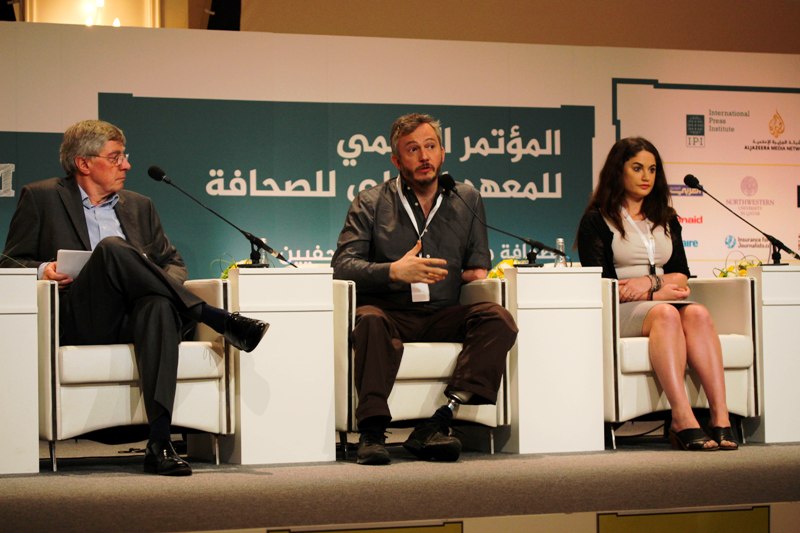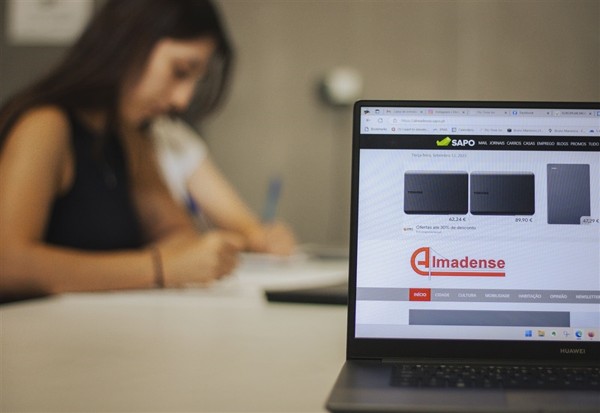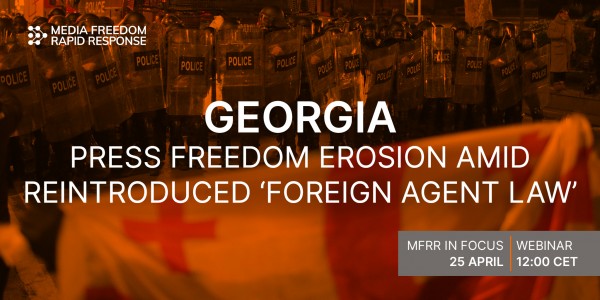Since late 2012, when the massive influx of refugees began making their way to Europe to escape conflict, uploading gut-wrenching photos and reporting heartbreaking accounts has become one of the media’s most over-told stories, speakers at the International Press Institute (IPI) World Congress panel “Covering the Refugee Crisis” suggested.
“The audience has overdosed on it, and these stories have stopped being effective,” Sulome Anderson, a contributing writer at New York Magazine, said during the discussion. “We need to humanise these refugees for the audience to connect with them.”
Ipek Yezdani, a senior foreign news correspondent for Hürriyet Daily News in Turkey, said while reflecting on her time reporting on refugee camps in Lesbos, Greece that viewing the situation as an outsider left her feeling ashamed of humanity.
“Our job as journalists is to reflect and to make sure they are not forgotten in the Middle East,” Yezdani said.
Giles Duley, an independent documentary photographer and photojournalist, said he believes that showing just one side of the story did not do it justice, as people may become upset about the horrific realities a photograph exposes but often do not understand the situation. He said people engage more with his stories when he points out the similarities between them and refugees.
“If there is a failure, then the failure is on our part for not fully telling the story,” Duley said. Addressing the media coverage of the ongoing crisis, Duley said he was distressed about the need for drama to sell stories.
He pointed to the time he spent in Nagu, a small island in Finland where 100 asylum seekers and refugees were expected to arrive. Residents were initially nervous about the cultural impact of hosting the refugees, but the community began to call them their “guests” and arranged recreational activities for them.
“I came back with that story, and it was published,” Duley recounted. “But even the editors of the newspaper said we would have never have commissioned the story because it sounded like it was a story about nothing.”
The noted photojournalist said that it may be easy to play on the negativity of a situation, but journalists have a role in the larger picture.
Chris Elliott, reader’s editor for The Guardian (UK), emphasised the importance of language while covering the refugee crisis and the need to differentiate between “asylum seekers”, “refugees” and “migrants”, explaining that the media has a tendency to stereotype and often oversimplify the crisis.
Elliott highlighted three solutions for achieving better coverage: more newsroom diversity, hiring specialized correspondents to cover refugee crisis globally and emphasis on training journalists on international law.



